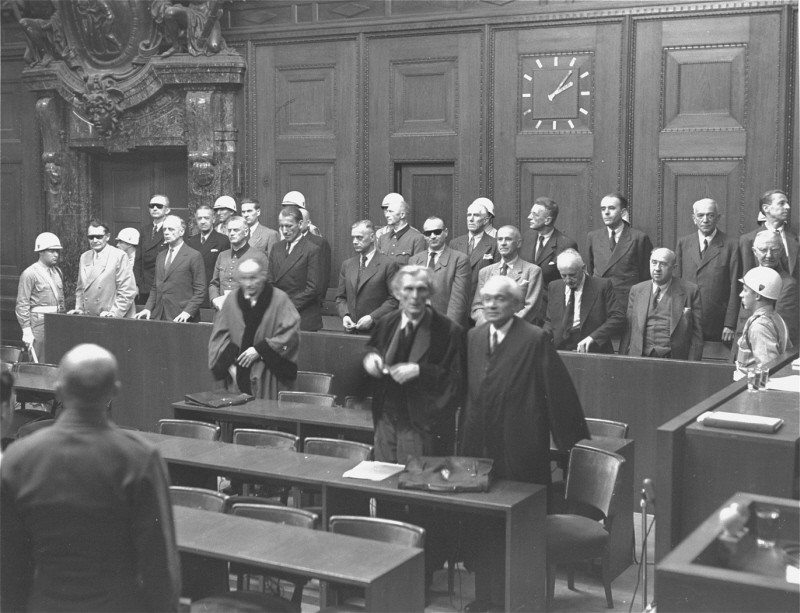
Julius Streicher
In the immediate aftermath of the Holocaust, the world was faced with a challenge—how to hold individually accountable those German leaders who were responsible for the commission of monstrous crimes against humanity and international peace. The International Military Tribunal (IMT) held in Nuremberg, Germany, attempted to face this immense challenge. On October 18, 1945, the chief prosecutors of the IMT brought charges against 24 leading German officials, among them Julius Streicher.
Trained as an elementary school teacher, Julius Streicher (1885–1946) was an early member of the Nazi Party. In 1923, he founded the virulently antisemitic and racist newspaper, Der Stürmer. Streicher was a leading organizer of Nazi Germany's first official nationwide boycott of Jewish businesses in April 1933. Although Streicher had lost credibility in party circles by 1940, he continued to edit and distribute his antisemitic propaganda newspaper to hundreds of thousands of Germans.
For his influential role in inciting hatred and violence, the International Military Tribunal at Nuremberg indicted Streicher on count four, crimes against humanity. Streicher was found guilty and sentenced to death. He was hanged on October 16, 1946.
Critical Thinking Questions
- Is there a direct link between words and actions? Can words and images inspire people to commit acts of genocide?
- How did German professionals and civil leaders contribute to the persecution of Jews and other groups?
- What pressures and motivations may have affected Streicher's choices before and during the war?
- Across Europe, the Nazis found countless willing helpers who collaborated or were complicit in their crimes. What motives and pressures led so many individuals to persecute, to murder, or to abandon their fellow human beings?
- Beyond the verdicts, what impact can trials have?

